#Jacques Guilhaumou
Explore tagged Tumblr posts
Text

Emilia Perez, Jacques Audiard (2024)
#Jacques Audiard#Thomas Bidegain#Léa Mysius#Nicolas Livecchi#Zoe Saldana#Karla Sofía Gascón#Selena Gomez#Edgar Ramírez#Mark Ivanir#Adriana Paz#Paul Guilhaume#Camille#Clément Ducol#Juliette Welfling#2024
2 notes
·
View notes
Text

Zoe Saldaña in Emilia Pérez (Jacques Audiard, 2024)
Cast: Zoe Saldaña, Karla Sofia Gascón, Selena Gomez, Adriana Paz, Edgar Ramirez, Mark Ivanir, Eduardo Aladro, Emilio Hasan. Screenplay: Jacques Audiard, based on a novel by Boris Razon. Cinematography: Paul Guilhaume. Production design: Emmanuelle Duplay. Film editing: Juliette Welfling. Music: Camille, Clément Ducol.
While I was watching Emilia Pérez I was caught up in the audacity of its neat intermeshing of drama with song and dance, but when it ended I felt let down. Jacques Audiard accomplishes what he set out to do: tell a story about a drug lord who transitions from male to female in search of authenticity and redemption. And he does it with the help of superb performances by Zoe Saldaña, Karla Sofia Gascón, and Selena Gomez, and witty choreography by Damien Jalet. But the film is all surface: It doesn't treat its characters as real people but rather as figures in a neo-noir melodrama laden with contemporary attitudes about sexuality and identity. The ending is far more conventional than I expected from such an interesting premise, turning the premise into a gimmick.
1 note
·
View note
Text

Jacques Audiard's Emilia Pérez is a daring and distinct blend of musical, crime, and comedy, delving into themes of identity, redemption, and societal transformation within a vibrant musical framework. The film, based on Audiard's opera libretto, which itself draws loosely from Boris Razon’s novel "Écoute," showcases a fearless attempt to navigate the life-altering journey of a feared Mexican cartel leader, Juan “Manitas” Del Monte, who transforms into Emilia Pérez. Played by Karla Sofía Gascón, Emilia's transformation is portrayed not just physically but through an emotional and philosophical reinvention, marking this as a story about seeking authenticity in a world built on façades. The result, however, is a film that swings between deeply moving and disjointedly chaotic, ultimately presenting a mix of hits and misses that leaves it uneven. https://www.youtube.com/watch?v=4h7j_EcZ5fU Setup: Audiard places Emilia Pérez in the realm of high-concept filmmaking, with the core plot tracing a cartel leader’s quest to shed their violent past and assume a new life in line with their true identity. The narrative gives space for intriguing moments of self-examination, especially in the scenes where Emilia (formerly Manitas) confronts her family and reflects on her past. Zoe Saldaña as Rita Mora Castro, a pragmatic lawyer pulled into Emilia’s orbit, complements this storyline by offering a grounded counterpoint to Emilia’s dramatic metamorphosis. Rita’s moral dilemmas, her professional ambition, and her own undercurrents of disillusionment provide an interesting subplot that runs parallel to Emilia’s journey. Yet, while Emilia Pérez bravely tackles transgender identity within the crime genre, the film occasionally falls short of conveying depth in its examination of Emilia’s internal struggles. The narrative, aiming to weave themes of personal liberation with an underlying message of atonement, loses coherence amid the exaggerated, at times kitschy, musical elements that feel more like decoration than meaningful storytelling. The emotional weight of Emilia's experiences is sometimes diluted by the sudden shifts in tone—from introspective to comedic to operatic. Musical structure: One of the film’s more polarizing aspects is its musical structure, shaped by original songs from Camille and an evocative score by Clément Ducol. The music veers between catchy and hauntingly melancholic, working best when underscoring Emilia’s moments of reflection. However, the songs sometimes lack integration within the narrative, feeling more like standalone performances than organic extensions of the story. This is especially evident in elaborate numbers like “El alegato” and “Mis siete hermanos y yo,” which, though memorable, occasionally detract from the film’s pacing. Paul Guilhaume’s choreography brings a welcome layer of artistry, injecting moments of expressive movement that accentuate the film’s operatic themes. The choreography is most effective in “El encuentro,” where Emilia’s internal struggle and aspiration for freedom are powerfully conveyed through dance. Yet, some of the dance sequences can feel overly stylized, pulling viewers out of the story rather than immersing them in it. This, coupled with the already sporadic tone shifts, makes the film’s musical and choreographic choices a mixed bag—creative but inconsistent in their impact. Lead performances: The cast delivers committed performances, with Karla Sofía Gascón standing out in the role of Emilia Pérez. Gascón brings an authenticity and a quiet power to the character’s journey of self-discovery, portraying Emilia’s vulnerability and resolve with nuance. Zoe Saldaña, as Rita, adds depth to the film, grounding it with her portrayal of a lawyer caught between her principles and personal ambitions. Saldaña’s chemistry with Gascón injects some much-needed realism into the otherwise larger-than-life narrative, particularly in scenes where the two characters confront the moral and emotional implications of their decisions. Selena Gomez, in the role of Jessi Del Monte, also makes a memorable appearance. Her character’s initially superficial nature becomes more layered as Jessi’s life unravels, with Gomez managing to evoke both pity and frustration in her portrayal. Supporting cast members like Adriana Paz and Mark Ivanir contribute with solid performances, though they are often underutilized, given the film’s sprawling plot. Filler scenes: Sadly, the film sometimes veers into excess, with certain sequences feeling unnecessarily grandiose and dragging down the pacing. The balance between lavish visuals and tight narrative focus isn’t always maintained, leaving some scenes to feel like filler rather than essential components of the story. Overall: Emilia Pérez is undoubtedly an ambitious film, attempting to tackle complex issues of gender identity, redemption, and family through a musical lens. Audiard’s creative vision shines in moments, especially through Gascón’s compelling performance and the film’s striking visual presentation. However, the film’s narrative structure lacks cohesion, with tonal shifts that disrupt rather than enhance the storytelling. The music and choreography, while artistically intriguing, can feel out of place and distract from the emotional depth of Emilia’s transformation and the impact of her past. Emilia Pérez is a film brimming with style and creativity but one that ultimately stumbles over its own ambition, leaving audiences with a memorable but uneven cinematic experience. Read the full article
0 notes
Text

#ProyeccionDeVida
📣 Kino Cat / Cine Tulipán, presenta:
🎬 “París, Distrito 13 / Les Olympiades”
🔎 Género: Romance / Drama / Amistad
⏰ Duración: 105 minutos
✍️ Guion: Jacques Audiard, Léa Mysius, Céline Sciamma y Nicolas Livecchi

📘 Historias: Adrian Tomine
🎼 Música: Rone
📷 Fotografía: Paul Guilhaume
🗯 Argumento: En el barrio de Les Olympiades, Émilie conoce a Camille, que se siente atraído por Nora, que, a vez, se cruza en el camino de Amber. Tres chicas y un chico, que son amigos, a veces amantes, y a menudo las dos cosas.

👥 Reparto: Noémie Merlant (Nora), Lucie Zhang (Emilie), Makita Samba (Camille),
Jehnny Beth (Amber Sweet), Soumaye Bocoum, Anaïde Rozam (Leïla), Fabienne Galula, Raphaël Quenard (Jeff)
📢 Dirección: Jacques Audiard

© Productoras: Page 114, France 2 Cinema, Canal+, Ciné+, France Télévision & Cofinova
🌎 Pais: Francia
📅 Año: 2021

📽 Proyección:
📆 Martes 30 de Enero
🕗 8:30pm.
🐈 El Gato Tulipán (Bajada de Baños 350 – Barranco)
🚶♀️🚶♂️ Ingreso libre
1 note
·
View note
Text
Les Olympiades (2021)
Directed by Jacques Audiard
Cinematography by Paul Guilhaume
Starring Lucie Zhang, Makita Samba and Noémie Merlant



"I channel professional frustration into intense sexual activity."

0 notes
Link
Pourquoi Robespierre fait-il le choix discursif, tout à la fois de référer le plus fréquemment « Jacobins » à la Société des Jacobins, et d’utiliser très rarement le singulier « jacobin » (13 occurrences) ? Le fait-il par une simple référence spatiale à un lieu de paroles, de débats ? Il convient ici de faire appel à la manière dont le lexicologue rapporte les usages de « jacobin(s)/jacobinisme » au sein des luttes politiques dès le début de la Révolution française.
#Révolution française#Robespierre#Jacobins#Jacques Guilhaumou#Maximilien Robespierre#Société des amis de la constitution#Société des amis de la liberté et de l'égalité
3 notes
·
View notes
Photo
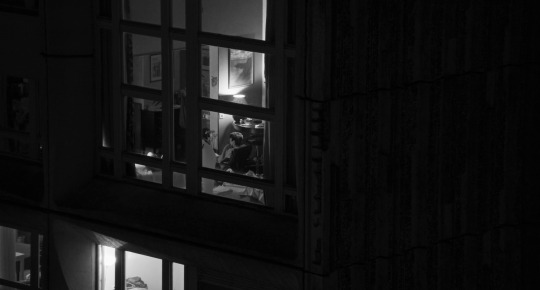

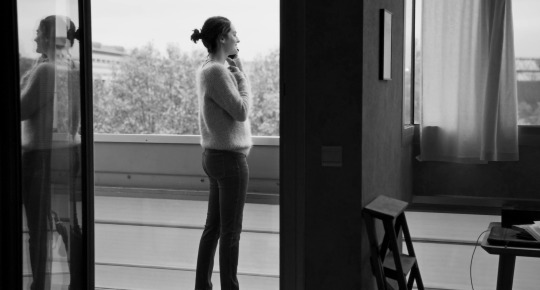

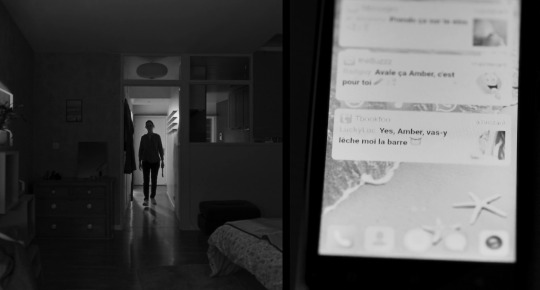

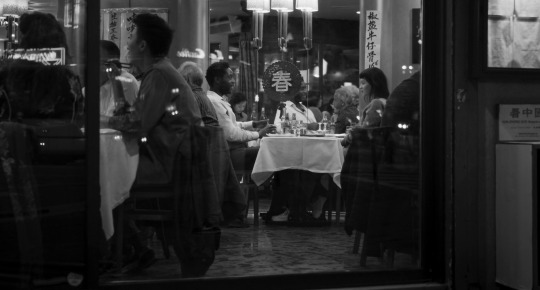
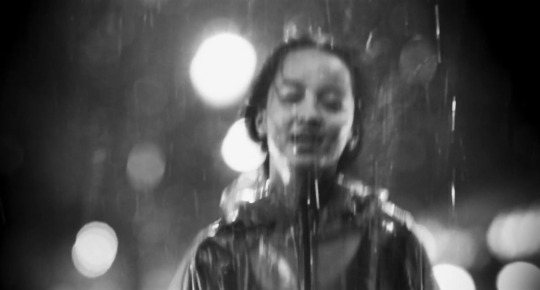
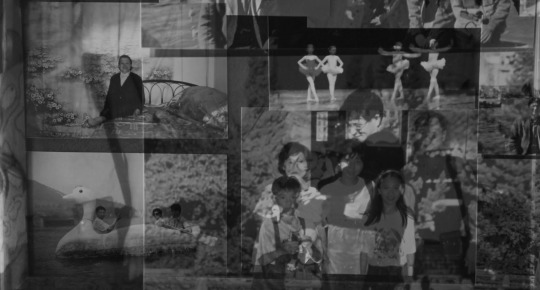

Paris, 13th District (Jacques Audiard, 2021).
#paris 13th district#jacques audiard#lucie zhang#makita samba#noémie merlant#paul guilhaume#juliette welfling#mila preli#Matthieu Guy d'Arpaillargues#virginie montel#les olympiades paris 13e
92 notes
·
View notes
Photo

The Cordeliers Club (J. Guilhaumou)
The Cordeliers Club « is more famous than known » : with these words, the historian Albert Mathiez defined the major difficulty of every overview on the club, within whose history entire sections, for lack of sources or studies, remain obscure.
It is highly probable that the club already existed in April 1790 under the title « club of the rights of man ». It appeared under its full name Society of the friends of the rights of man and of the citizen in June 1790. An address of the Cordeliers of the same year proclaims that the patriots have to devote themselves « to the defence of the victims of suppression and to the relief of the unfortunate », and, in this capacity, adopted the eye, a symbol of surveillance, as the seal of the society. In the beginning, the club held its sessions in a room of the Cordeliers Convent. Being persecuted by the municipality, the Cordeliers ended up settling in the locale of the Musée, Hôtel de Genlis, Rue Dauphine, where they would remain throughout their existence.
Under the auspice of the rights of man and of the citizen, displayed behind the president in the debate room, the club presented a particular physiognomy. It thereby clearly distinguished itself from the Jacobin Club on the various levels of its existence : local (around the section of the Théâtre-Français), regional (in Paris) and national (in 1793). The Jacobins endeavoured to follow the initiatives of the National Assembly as closely as possible and to form a network of affiliated societies which would reverberate and enrich their propositions. The Cordeliers favoured their mission of surveillance and of control towards the constituted authorities. This is why they admitted women to their society, as well as passive citizens. A. Mathiez could say that they formed « a group of action and combat » that was always in a state of alert when it was a matter of reacting to breaches of the rights of man. Thus, the club was a favoured place of encounters, of exchanges between spokespersons, hommes de liaison, commissioners and other political mediators who wanted to apply the avowed droit naturel, the Constitution.
The club owes its first success, in 1791, to the federation which it established with the fraternal societies, which originally have been formed in its wake. Marat, a Cordelier par excellence, received the title « father of the fraternal societies ». Numerous revolutionary personalities frequented the club, although it is not possible to point out a leader : Danton, Hébert, Vincent, Rutledge, Legendre, Marat, Lebois, Chaumette, etc.
Increasingly critical towards the executive power, the club took the helm, during the spring of 1791, of the democratic movement in favour of the establishment of the Republic. After the king's flight, and in the moment of the composition of the Champ de Mars petition, the Cordeliers defined their principal and permanent objective : it was necessary to « proceed to the replacement and the organisation of a new executive power ». In the aftermath of the Champ de Mars Massacre (17 July 1791), due to repression and internal divisions, the club was weakened. It recovered its strength, in 1792, through the mediation of the network which it had built with the popular societies of the provinces. Thus, it would serve as the voice of the fédérés of 10 August and play a non-negligible role in the proceeding of the insurrection against the king. The position of the Cordeliers was consolidated during the winter of 1792-1793, at the time where the Jacobins collided with the Enragés. The growing importance of figures such as Hébert, the Père Duchesne, and Marat assured them a certain renown. But the club only reached a national dimension at the end of the insurrection of 31 May, 1 and June. Around it, several institutions gathered : the revolutionary committees of the sans-culotte sections, the Ministry of War where Vincent cut his teeth, the Commune of Paris and, of course, the popular societies. During the summer of 1793, the club conquered, with the help of the delegates for the festival of 10 August, a hegemonic position within the Jacobin movement. One can speak, at that time, of the Cordelier or « Hébertist » movement (A. Mathiez). Hébert, in Le Père Duchesne, defined the watchwords of the revolutionary movement. Vincent, for his part, explained his project for the organisation of the executive power at the club. The Cordeliers distanced themselves from the sans-culotte movement through their refusal of direct democracy. The Cordelier programme began to be realised, particularly in Marseille, by the assembly of the popular societies' central committees. But the Robespierrist Jacobins, partisans of « legislative centrality », were determined to put an end to the Cordelier offensive. In spite of their victory during the revolutionary journées of 4 and 5 September, which brought about the creation of the revolutionary army and the mise à l'ordre du jour of the Terror, the Cordeliers were attacked at the Jacobin Club by Robespierre and Coupé de l'Oise, at the National Convention by Billaud-Varenne during the second fortnight of September. Then began a series of skirmishes which resulted in the arrest of Vincent and Ronsin (17 December 1793). In the provinces, the representatives en mission, denounced by the Cordeliers, forced the central committees to dissolve.
In early 1794, the club turned back into a district club, influential in some sections, and closer to the demands of the Parisian popular movement. Now, what about the famous « Cordelier insurrection » of Ventôse, Year II? It was in fact a matter of political « manipulation » that was arranged by the Montagnards in order to deliver a first blow to the popular movement. The journalists, interpreting Hébert's moral call to insurrection in a political sense, strongly contributed to such a manipulation. It was their revenge against the Père Duchesne! After the arrest and execution (14 and 24 March 1794) of the Cordelier « leaders », the club, even after having been purified, ceased to gather permanently.
Source: Dictionnaire historique de la Révolution française (Albert Soboul)
#French Revolution#frev#cordeliers#club des cordeliers#translation#hébert#Danton#ronsin#vincent#marat#legendre#chaumette#dhcordeliers#jacques guilhaumou
25 notes
·
View notes
Photo









Finally a movie that defines most lesbian relationships. 'Paris, 13th District' (2021). — dir. Jacques Audiard.
38 notes
·
View notes
Video
youtube
Les Olympiades - Jacques Audiard (2021)
Trailer
#les olympiades#jacques audiard#fall 2021#2020s#cannes film festival#trailer#video#paris 13th district#paris#france#lucie zhang#makita samba#noémie merlant#jehnny beth#paul guilhaume#céline sciamma#adrian tomine#page 114#Nicolas Livecchi#léa mysius
5 notes
·
View notes
Text
Janvier MMXXI
Films
Alexandre le Bienheureux (1968) de Yves Robert avec Philippe Noiret, Françoise Brion, Marlène Jobert, Paul Le Person et Pierre Richard
Les Mariés de l'an II (1971) de Jean-Paul Rappeneau avec Jean-Paul Belmondo, Marlène Jobert, Sami Frey, Laura Antonelli et Michel Auclair
Tendre Poulet (1978) de Philippe de Broca avec Annie Girardot, Philippe Noiret, Catherine Alric et Hubert Deschamps
Le cave se rebiffe (1961) de Gilles Grangier avec Jean Gabin, Maurice Biraud, Bernard Blier, Martine Carol et Françoise Rosay
Jackie (2016) de Pablo Larraín avec Natalie Portman, Greta Gerwig, Peter Sarsgaard et John Hurt
Ivanhoé (1952) de Richard Thorpe avec Robert Taylor, Elizabeth Taylor, Joan Fontaine et George Sanders
Nevada Smith (1966) de Henry Hathaway avec Steve McQueen, Karl Malden, Brian Keith, Arthur Kennedy, Suzanne Pleshette et Martin Landau
Les Enchaînés (Notorious) (1946) d’Alfred Hitchcock avec Cary Grant, Ingrid Bergman et Claude Rains
Mission impossible (Mission: Impossible) (1996) de Brian De Palma avec Tom Cruise, Emmanuelle Béart, Jon Voight et Jean Reno
Working Girl (1988) de Mike Nichols avec Melanie Griffith, Harrison Ford, Sigourney Weaver et Alec Baldwin
Man Trouble (1992) de Bob Rafelson avec Jack Nicholson, Ellen Barkin, Beverly D'Angelo et Veronica Cartwright
The Island (2005) de Michael Bay avec Scarlett Johansson, Ewan McGregor, Djimon Hounsou et Sean Bean
Vivement dimanche ! (1983) de François Truffaut avec Fanny Ardant, Jean-Louis Trintignant, Jean-Pierre Kalfon et Philippe Laudenbach
The Artist (2011) de Michel Hazanavicius avec Jean Dujardin, Bérénice Bejo, James Cromwell et John Goodman
Les Vikings (The Vikings) (1958) de Richard Fleischer avec Kirk Douglas, Tony Curtis, Janet Leigh et Ernest Borgnine
C'était un rendez-vous (1976) de Claude Lelouch avec Claude Lelouch et Gunilla Friden
Alceste à bicyclette (2013) de Philippe Le Guay avec Fabrice Luchini, Lambert Wilson et Maya Sansa
Mission : Impossible - Rogue Nation (2015) de Christopher McQuarrie avec Tom Cruise, Rebecca Ferguson, Simon Pegg et Jeremy Renner
Spectacle
L’Hôtel du libre échange (2015) de Georges Feydeau avec Thierry Beccaro, Virginie Guilhaume, Bruno Guillon, Valérie Maurice, Patrice Laffont et Carinne Teyssandier
La Dame de chez Maxim (2020) de Georges Feydeau avec Micha Lescot, Léa Drucker, André Marcon, Anne Rotger, Eric Prat, Christophe Paou, Reinhardt Wagner, Valerian Behar Bonnet
Le crédit (2019) de Jordi Galceran avec Didier Bénureau et Daniel Russo
Séries
Kaamelott Livre I, II
Un Roi à la taverne - Raison d’argent - L’Enlèvement de Guenièvre - L’Escorte II - Sous les Verrous - Vox Populi II - Unagi II - Les Exploités - Séli et les Rongeurs - Feue la vache de Roparzh - Les Alchimistes - Les Chiens de Guerre - La Botte Secrète II - Spiritueux - La Corde - Un Roi à la Taverne II - La Fête du Printemps - La Joute Ancillaire - La Garde Royale - L’Ambition - Le Reclassement - Silbury Hill - La Vigilance d’Arthur - La Chambre - Le Rassemblement du Corbeau - Le Terroriste - Le Portrait - La Révolte
Nestor Burma Saison 2, 3
Retour au bercail - L'Homme au sang bleu
Top Gear Saison 18,19, 7, 11, 8, 12, 13, 22, 21, 16
Feux croisés en Italie - 1500 km a fond de 5eme - Le Road Trip Ideal 2 : partie 1 - Le Road trip Ideal 2 : partie 2 - La vitesse en toute liberté - La traversée du Japon - Dans la vallée du feu - Les Top Gear Awards - Les pires voitures de l'histoire - Gordon Ramsay aux commandes ! - La première voiture amphibie - En tournée avec les Who ! - Trois camions d'enfer - Apprentis policiers - Passion vintage - Small is beautiful - S.O.S Urgences - Trophée Andros - Porsche Cayenne Turbo S contre parachutiste - La fièvre du vintage - USA : On Road Again - Nostalgie des années 80 - Road Trip à Tchernobyl - Mercedes, folle du désert - L'Albanie en Rolls-Royce - La Fiesta dans tous ses états - Surfin’ USA - Made in China - Caravane Tour
The Grand Tour Saison 2, 3, 1
Pas de script - Spécial Colombie : partie 1 - Spécial Colombie : partie 2 - Courses de Noël - Échappée marocaine - La Loi du plus fort - Oh oui, de l'essence
Chapeau melon et bottes de cuir Saison 5
Meurtres distingués - Interférences - Caméra meurtre
Friends Saison 2, 3
Celui qui affronte les voyous - Celui qui faisait le lien - Celui qui attrape la varicelle - Celui qui embrassait mal - Celui qui avait la technique du câlin - Celui qui ne supportait pas les poupées - Celui qui bricolait - Celui qui se souvient
Doctor Who
Revolution of the Daleks
Alexandra Ehle Saison 2
La Peste
Les petits meurtres d’Agatha Christie Saison 3
La Nuit qui ne finit pas
Livres
Sherlock Holmes et le Mystère du Haut-Koenigsbourg de Jacques Fortier
Batman : Dark Knight 1 : Résurrection de Frank Miller
OSS 117 : Tortures de Jean Bruce
Casse-pipe à la Nation de Léo Malet et Jacques Tardi
2 notes
·
View notes
Photo
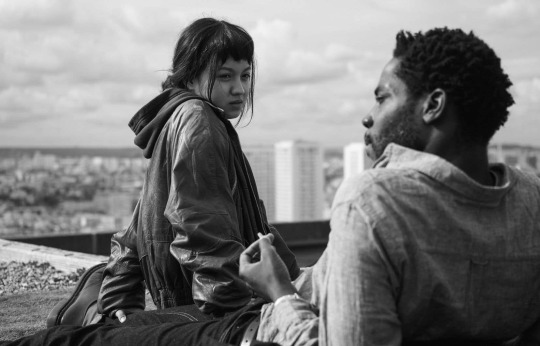
Paris, 13th District (Les Olympiades, Paris 13e), Jacques Audiard (2021)
#Jacques Audiard#Léa Mysius#Céline Sciamma#Lucie Zhang#Makita Samba#Noémie Merlant#Jehnny Beth#Camille Léon Fucien#Oceane Cairaty#Anaïde Rozam#Pol White#Paul Guilhaume#Rone#Juliette Welfling#2021
6 notes
·
View notes
Text
PARIS,DISTRITO 13
(Domando los corazones rebeldes) Título original: Les Olympiades Año: 2021 País: Francia Dirección: Jacques Audiard/ Historias: Adrian Tomine Guion: Jacques Audiard, Léa Mysius, Céline Sciamma, Nicolas Livecchi. Música: Rone Fotografía: Paul Guilhaume Reparto: Lucie Zhang, Makita Samba, Noémie Merlant, Jehnny Beth Sinopsis: París, distrito 13, barrio de Les Olympiades. Émilie conoce a…
View On WordPress
0 notes
Text

Jacques Audiard's Emilia Pérez is a daring and distinct blend of musical, crime, and comedy, delving into themes of identity, redemption, and societal transformation within a vibrant musical framework. The film, based on Audiard's opera libretto, which itself draws loosely from Boris Razon’s novel "Écoute," showcases a fearless attempt to navigate the life-altering journey of a feared Mexican cartel leader, Juan “Manitas” Del Monte, who transforms into Emilia Pérez. Played by Karla Sofía Gascón, Emilia's transformation is portrayed not just physically but through an emotional and philosophical reinvention, marking this as a story about seeking authenticity in a world built on façades. The result, however, is a film that swings between deeply moving and disjointedly chaotic, ultimately presenting a mix of hits and misses that leaves it uneven. https://www.youtube.com/watch?v=4h7j_EcZ5fU Setup: Audiard places Emilia Pérez in the realm of high-concept filmmaking, with the core plot tracing a cartel leader’s quest to shed their violent past and assume a new life in line with their true identity. The narrative gives space for intriguing moments of self-examination, especially in the scenes where Emilia (formerly Manitas) confronts her family and reflects on her past. Zoe Saldaña as Rita Mora Castro, a pragmatic lawyer pulled into Emilia’s orbit, complements this storyline by offering a grounded counterpoint to Emilia’s dramatic metamorphosis. Rita’s moral dilemmas, her professional ambition, and her own undercurrents of disillusionment provide an interesting subplot that runs parallel to Emilia’s journey. Yet, while Emilia Pérez bravely tackles transgender identity within the crime genre, the film occasionally falls short of conveying depth in its examination of Emilia’s internal struggles. The narrative, aiming to weave themes of personal liberation with an underlying message of atonement, loses coherence amid the exaggerated, at times kitschy, musical elements that feel more like decoration than meaningful storytelling. The emotional weight of Emilia's experiences is sometimes diluted by the sudden shifts in tone—from introspective to comedic to operatic. Musical structure: One of the film’s more polarizing aspects is its musical structure, shaped by original songs from Camille and an evocative score by Clément Ducol. The music veers between catchy and hauntingly melancholic, working best when underscoring Emilia’s moments of reflection. However, the songs sometimes lack integration within the narrative, feeling more like standalone performances than organic extensions of the story. This is especially evident in elaborate numbers like “El alegato” and “Mis siete hermanos y yo,” which, though memorable, occasionally detract from the film’s pacing. Paul Guilhaume’s choreography brings a welcome layer of artistry, injecting moments of expressive movement that accentuate the film’s operatic themes. The choreography is most effective in “El encuentro,” where Emilia’s internal struggle and aspiration for freedom are powerfully conveyed through dance. Yet, some of the dance sequences can feel overly stylized, pulling viewers out of the story rather than immersing them in it. This, coupled with the already sporadic tone shifts, makes the film’s musical and choreographic choices a mixed bag—creative but inconsistent in their impact. Lead performances: The cast delivers committed performances, with Karla Sofía Gascón standing out in the role of Emilia Pérez. Gascón brings an authenticity and a quiet power to the character’s journey of self-discovery, portraying Emilia’s vulnerability and resolve with nuance. Zoe Saldaña, as Rita, adds depth to the film, grounding it with her portrayal of a lawyer caught between her principles and personal ambitions. Saldaña’s chemistry with Gascón injects some much-needed realism into the otherwise larger-than-life narrative, particularly in scenes where the two characters confront the moral and emotional implications of their decisions. Selena Gomez, in the role of Jessi Del Monte, also makes a memorable appearance. Her character’s initially superficial nature becomes more layered as Jessi’s life unravels, with Gomez managing to evoke both pity and frustration in her portrayal. Supporting cast members like Adriana Paz and Mark Ivanir contribute with solid performances, though they are often underutilized, given the film’s sprawling plot. Filler scenes: Sadly, the film sometimes veers into excess, with certain sequences feeling unnecessarily grandiose and dragging down the pacing. The balance between lavish visuals and tight narrative focus isn’t always maintained, leaving some scenes to feel like filler rather than essential components of the story. Overall: Emilia Pérez is undoubtedly an ambitious film, attempting to tackle complex issues of gender identity, redemption, and family through a musical lens. Audiard’s creative vision shines in moments, especially through Gascón’s compelling performance and the film’s striking visual presentation. However, the film’s narrative structure lacks cohesion, with tonal shifts that disrupt rather than enhance the storytelling. The music and choreography, while artistically intriguing, can feel out of place and distract from the emotional depth of Emilia’s transformation and the impact of her past. Emilia Pérez is a film brimming with style and creativity but one that ultimately stumbles over its own ambition, leaving audiences with a memorable but uneven cinematic experience. Read the full article
0 notes
Text
Sledujte Paříž, 13. obvod 2021 celý film online zdarma cz dabing
Sledujte Paříž, 13. obvod 2021 online cz | Paříž, 13. obvod celý film cz online | Paříž, 13. obvod Online Film Zdarmo | Paříž, 13. obvod film cz online bez registrace.
Sledování celý film Paříž, 13. obvod (2021) je v současné době film, po kterém žádají různé skupiny. Ať už mladí nebo staří, sledování filmů během pandemie je nutností k vyplnění nudy, protože musíme zůstat doma. To je důvod, proč musíme hledejte důvěryhodné weby a poskytujte online streamování zdarma. Pokud hledáte stránky popsané výše, můžete kliknout na níže uvedený odkaz:
Filmy Paříž, 13. obvod (2021) zdarma HD cz titulky

Kde najít celý Paříž, 13. obvod (2021) ? zde jej můžete sledovat online a zdarma bez registrace. Všechny filmy s českým dabingem nebo s českými titulky. A také s HD kvalitou a čistým zvukem.
Sledujte klikněte zde ▶️ https://t.co/dD9NcSAOz8?amp=1
Je to velmi snadné, stačí kliknout na výše uvedený odkaz a přejdete přímo na web, kde můžete zdarma sledovat filmy Paříž, 13. obvod (2021). Pokud jste zaneprázdněni, můžete si film také stáhnout a sledovat ho doma.
Následuje řada informací o filmu Paříž, 13. obvod (2021) od Synopse, Artist,Datum vydání a dalších
Paris, 13th District (francouzsky: Les Olympiades) je francouzský dramatický film z roku 2021, režírovaný a produkovaný Jacquesem Audiardem, podle scénáře Audiarda, Céline Sciamma a Léy Mysius, založený na krátkých komiksových povídkách Amber Sweet, Hawaiian Getaway a Killing and Umírání z knihy posledně jmenovaného amerického karikaturisty Adriana Tomina. Hrají Lucie Zhang, Makita Samba, Jehnny Beth a Noémie Merlant.
Francie Les Olympiades Drama Francie, 2021, 105 min Režie: Jacques Audiard Scénář: Jacques Audiard, Léa Mysius, Céline Sciamma Kamera: Paul Guilhaume Hudba: Erwan Castex Hrají: Noémie Merlant, Geneviève Doang, Jehnny Beth, Makita Samba, Lucie Zhang
1. Synopse
Životy čtyř dospělých, Emilie, Camille, Nory a Amber, které jsou přátelé a někdy i milenci.
2. Hrají
Noémie Merlant Geneviève Doang Jehnny Beth Makita Samba Lucie Zhang
3. Datum vydání Paříž, 13. obvod (2021)
Premiéra v ČR Paříž, 13. obvod (2021) dorazil do našich kin 03.11.2021 , přičemž o den později byl dostupný i na streamovací službě odkaz výše.
Kvalitní sledování celý film Paříž, 13. obvod (2021) a jak se na to dívat
Jaká kvalita videa je k dispozici v tomto filmu Paříž, 13. obvod (2021)?
Nejlepší kvalita streamovaného videa při sledování filmů je nejdůležitější. Chcete -li získat pohodlí při sledování filmů a získat čistou kvalitu zvuku. existuje několik kvalit, které poskytujeme, počínaje kvalitou 4K Ultra Hd, HD 1080p, HD 720p, HD 420p a nakonec poskytujeme také kvalitu Mp4. Tyto možnosti vám usnadní výběr nejlepší požadované kvality videa.
Proč byste se měli dívat na nejnovější film Paříž, 13. obvod (2021)?
Film Paříž, 13. obvod (2021) je film, který je právě sledován. Proč je to tak? protože vám promítneme film Paříž, 13. obvod (2021) online zdarma a s cz a sk dabingem. poskytujeme také filmy Paříž, 13. obvod (2021) zdarma v HD kvalitě. Podívejte se také na seznam nejlepších nejnovějších filmů na našem webu z kategorie Oblíbené filmy online zdarma.
Kde se můžete podívat na celý film Paříž, 13. obvod (2021)?
V současné době je k dispozici mnoho stránek, kde je možné sledovat celé filmy online. Můžeme snadno sledovat filmy, které se nám líbí. Filmy Paříž, 13. obvod (2021) můžete sledovat kdykoli odkudkoli, včetně České republiky. Na našich stránkách Všechny filmy mají české, slovenské, anglické titulky a další jazyky. Sledujte filmy Paříž, 13. obvod (2021) zdarma online na našem webu. Pokud se zaregistrujete hned, získáte první dny zdarma videa a filmy Paříž, 13. obvod (2021), které si můžete přehrát, kdykoli budete online. Sledujte filmy Paříž, 13. obvod (2021) z online nabídky nebo streamujte na chytré televizi, počítači, Macu, mobilu, tabletu a androidu.
Proč byste měli sledovat na našich stránkách?
Náš web nabízí celou řadu filmů, nejnovější i staré. Film můžete sledovat snadno a zdarma bez registrace. Pokud jste zmatení z filmů, které jsou právě sledovány, stačí se podívat po oblíbených filmech na našem webu. Nabízíme mnoho filmů různých žánrů od akce, komedie, sci-fi, hororů, kreslených filmů, dramat, televizních filmových seriálů a dalších. Zde je důvod, proč byste měli sledovat filmy na našem webu:
1. Filmy se vždy aktualizují, pokud existují nové filmy, které jsou lyrické. 2. Na našich stránkách jsou také k dispozici nové a staré filmy. 3. V kvalitě filmu HD si můžete také vybrat jiné. 4. K dispozici v češtině a slovenštině i v dalších zemích. 5. Dobrá kvalita obrazu a čistý zvuk. 6. Lze sledovat streamování nebo si jej stáhnout. 7. Lze sledovat na telefonech Android, PC, Mac, Iphone, tabletech a chytrých televizorech. 8. Snadné a bez registrace. 9. Lze sledovat zdarma.
To jsou některé z výhod, pokud sledujete naše stránky. Stačí kliknout na výše uvedený odkaz. Naštěstí sledováním našich stránek můžete být s našimi službami pobaveni a spokojeni.
Děkujeme za sledování na našich stránkách
Děkujeme vám za sledování na našich stránkách. Budeme mít všechny zájemce o zasílání novinek nebo informací o letošních filmových událostech a o tom, jak sledovat vaše oblíbené filmy. Naštěstí můžeme být vaším nejlepším partnerem při hledání vašich oblíbených doporučení filmů. Děkujeme za sledování dnešního videa. Doufám, že se vám video, které sdílím, bude líbit. a uvolněte nudu během současné pandemie. Pokud se vám líbí obsah, který sdílíme, dejte nám palec nahoru a ukažte nám, že se vám to líbí, nebo se podělte o to, co dělá, se svými přáteli. Hezký den děkuji.
Paříž, 13. obvod (2021) Celý Film 2021, Paříž, 13. obvod (2021) Filmové Novinky, Paříž, 13. obvod (2021) celý film Český Dokumentární, Paříž, 13. obvod (2021) Filmové premiéry, Paříž, 13. obvod (2021) celý film Česka cz dabing, Paříž, 13. obvod (2021) sleduj filmy, Paříž, 13. obvod (2021) online cz titulky, Paříž, 13. obvod (2021) CZ HD Film o filmu, Paříž, 13. obvod (2021) CZ dabing, Paříž, 13. obvod (2021) premiéra, Paříž, 13. obvod (2021) online cz, Paříž, 13. obvod (2021) online sk Paříž, 13. obvod (2021) online cz dabing, Paříž, 13. obvod (2021) online sk dabing Paříž, 13. obvod (2021) Celý Film, Paříž, 13. obvod (2021) Titulky, Paříž, 13. obvod (2021) DVD filmy, Paříž, 13. obvod (2021) Blu-ray filmy, Paříž, 13. obvod (2021) online cely film CZ, Paříž, 13. obvod (2021) online ke shlednuti, Paříž, 13. obvod (2021) cz dabing online ke shlednuti, Paříž, 13. obvod (2021) online, Paříž, 13. obvod (2021) online film cz, Paříž, 13. obvod (2021) Bombuj sk Paříž, 13. obvod (2021) bombuj cz, Paříž, 13. obvod (2021) online ke shlédnutí, Paříž, 13. obvod (2021) celý film Cesky, Paříž, 13. obvod (2021) celý film zdarma ke shlédnutí, Paříž, 13. obvod (2021) celý film cz dabing, Paříž, 13. obvod (2021) sleduj filmy, Paříž, 13. obvod (2021) online cz titulky, Paříž, 13. obvod (2021) celý film zdarma Sleduj Paříž, 13. obvod (2021) Celý Film CZ Dabing HD Paříž, 13. obvod (2021) Celý Film CZ DABING Česky CZ Zdarma
#Paříž 13. obvod (2021) online sk#Paříž 13. obvod (2021) online sk dabing#Paříž 13. obvod (2021) online cz dabing#Paříž 13. obvod (2021) online cz#Paříž 13. obvod (2021) online cz titulky#Paříž 13. obvod (2021) celý film zdarma
0 notes
Photo

Karlov’s nightmare. A still from the 9th episode of LBDL5. Directed by Jacques Audiard. Actor - Anatolii Panchenko Steadicam - Marion Gaillard Cinematographer - Paul Guilhaume #lbdl #thebureau #thebureaufans #lebureaudeslegendes #ericrochant #jacuqesaudiard #karlov #bakatine #anatoliipanchenko #анатолийпанченко #mariongaillard
0 notes